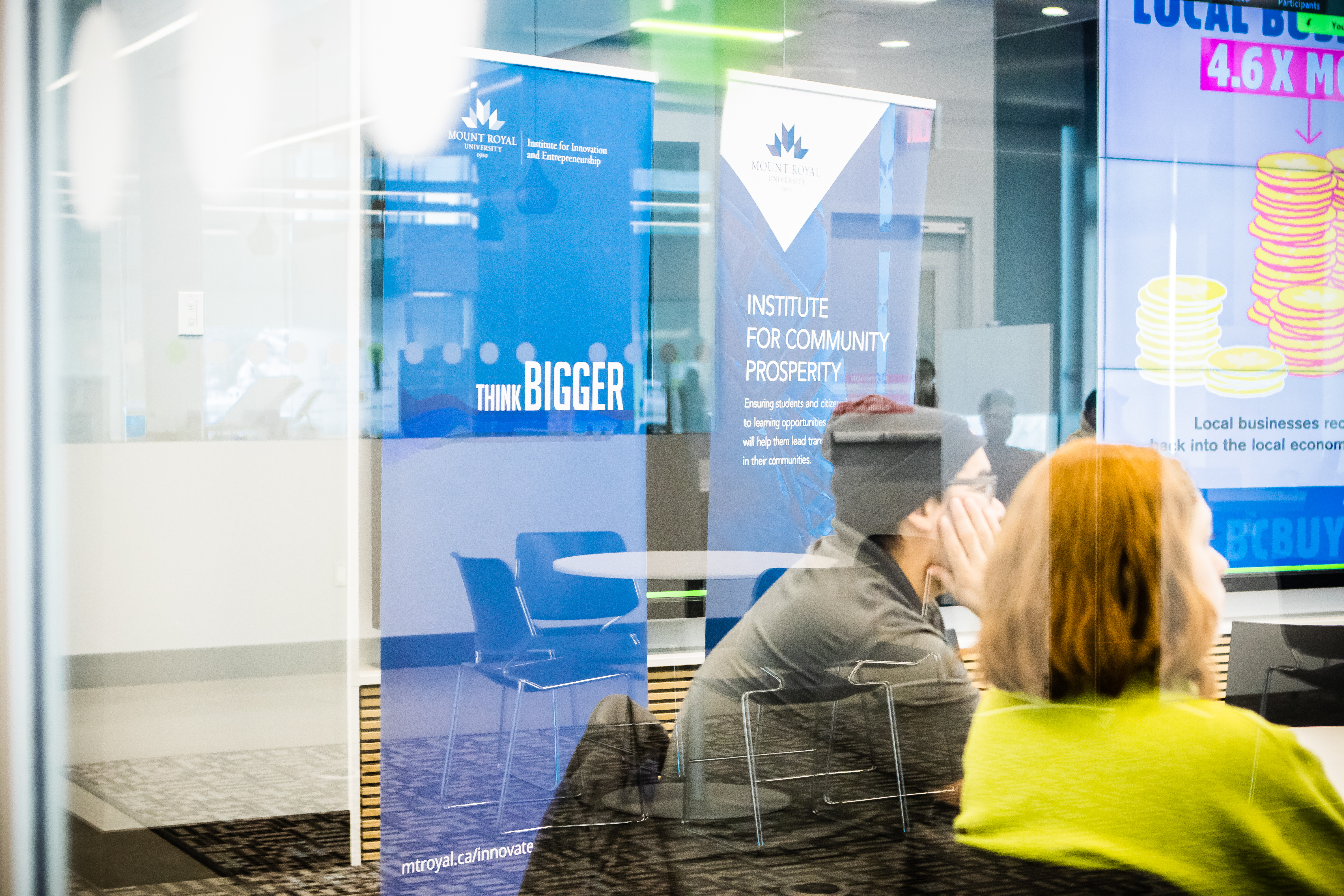Transforming Higher Education for Social Innovation: A Call to Action
Posted Nov 30, 2023 - Linh Bui
In July our Executive Director, James Stauch, had an opportunity to present at TedXCalgary: Yes, and…(2023). His talk was inspired by his previous article “Diagnosing the Social Innovation Challenges in Universities.” Published in the Social Innovation Journal, the article is a practice-informed reflection which outlines how universities are failing to deliver strong social innovation learning to tackle local or global social challenges.
In his talk, James highlighted the urgency of social innovation as imperative to our collective wellbeing as it has the potential to reshape the patterns and assumptions of failing systems. Watch the talk below:
Key Highlights of the Talk
1. The Essence of Social Innovation: Social innovation is the process of turning radical ideas into practical solutions for the common good. It includes initiatives ranging from improving healthcare accessibility to urban sanitation and environmental issues.
2. The Current Challenges: The escalating crises we face are complex and urgent, including climate breakdown, affordable housing shortages, mental health challenges, and biodiversity loss. Therefore, Social innovation isn’t just needed; It’s an existential imperative in the face of these crises.
"Social Innovation isn’t just needed. It’s an existential imperative"
3. Academia's Role: Despite being a hub of knowledge, universities are critiqued for falling short in driving social innovation. While they excel in producing critical insights and evidence, they struggle to guide us on the next steps—how to effectively address and solve societal issues
4. The Need for Systems Thinking: The importance of systems thinking is emphasized as a critical tool in understanding the roots of problems, their origins, and potential interventions across various disciplines. Unfortunately, universities are shown to be lacking in this essential competency.
5. Call for Transformation in Universities: Despite being a hub of knowledge, universities are criticized for falling short in driving social innovation. While they excel in producing critical insights and evidence, they struggle to guide us on the next steps - how to effectively address and solve societal issues.
"Universities lack the necessary proximity to do a decent job of innovation in this century.” For all our vaunted praise of academic freedom, as Meagan Fallone from Barefoot College noted in the same debate, universities collectively do not take risks, and they tend toward conformity and political correctness, not deviance. Add to this a failure to nurture imagination, intuitive insight, or interaction with people at the grassroots, and universities are failing on both humanitarian and entrepreneurial grounds" - Excerpted from “Diagnosing the Social Innovation Challenges in Universities”
6. The Role of Students: Students are positioned as the North Star in this transformation, with their demand for socially and environmentally conscious education driving the change. We need to shift the focus from viewing students as potential future scholars to empowering them as changemakers.
7. Community Engagement: Engaging in community initiatives and efforts is important. It is a springboard to integrate changemakers into academia and scholars into the community. This reciprocal relationship is vital for meaningful societal impact.
8. Decolonizing academia: What does it mean to decolonize Academia? It means to courageously make a disruption to postsecondary education. This involves questioning existing structures and practices to create an inclusive and equitable learning environment.
9. The Path Forward: It is clear to us now there is an urgent call to action to governments, philanthropists, community groups, and, most importantly, students to join the movement. The transformation of universities into engines of social innovation is positioned as a collective responsibility, one that cannot wait in the face of urgent global challenges.
As we reflect on these insights, we invite you to envision a future where higher education isn't just about knowledge consumption but about creating impactful solutions for a better, more sustainable world. The time for this transformation is now, and the call to action is resounding.
Social Innovation Education for undergraduate and continuing education
“Everyone can be changemakers” is the vision of the Ashoka Changemaker Campuses. Regardless of your disciplines of focus i.e. biology, psychology, business, environment, engineering, etc., you can make a real difference in your communities with your discipline. You can apply social innovation to your specific area of expertise to change the world. So, try fill in the blank with your own discipline, and have a high-impact career path to make lasting positive change happen!
Taking on this vision, Mount Royal University has established the Social Innovation program for undergraduate and continuing education. This enables us to follow our passion by partnering on a variety of credit-based changemaking-focused learning for students across campus, inspiring students to pursue their passions and make a positive impact in their communities.
- Check out the Social Innovation Program at MRU.
The institute offers co-curricular (non-credit) opportunities in social innovation as well. These opportunities aim to cultivate crucial changemaking skills, including Map The System and connectFirst Social Entrepreneurs, and empower students to take part in community-partnered projects like Catamount Fellowship for Emerging Changemakers.



